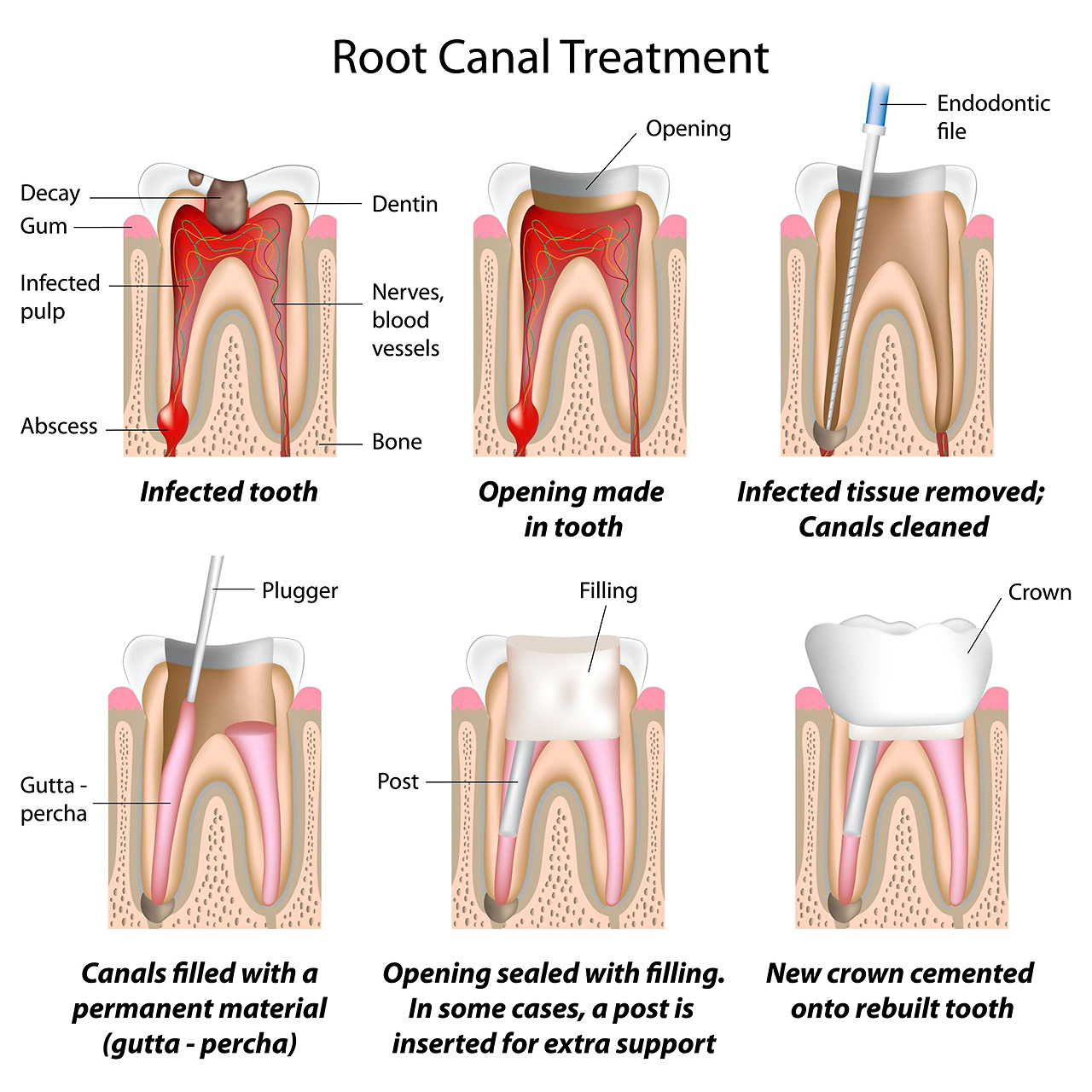Introduction
The pulp is the ‘heart’ of the tooth. During infection from tooth decay or trauma, the tooth may become very tender, or have long periods of sensitivity.
If we are able to prevent the tooth from being extracted, root canal treatment may be performed. The procedure involves cleaning and disinfection of the canals, and eventually filling the nerve canals with an inert material for support of the canal structure.
Usually a permanent crown is required after root canal treatment is completed to prevent further fracture of the tooth.

Benefits
Root canal treatment is done to eliminate pain from a nerve infection of the tooth. The tooth is then able to be prevented from being extracted and once a crown is placed, the tooth can generally function like a normal tooth again.
Treatment Process
- Tooth is assessed and xray will be taken
The xray will be taken to determine the extent of the infection and to find out if there are any potential complications to the treatment. - Local anaesthetic is given, and an opening is made on the top of the tooth.
Under local anaesthetic, there should not be any more discomfort and the opening is created to gain access to the nerve system within the tooth. - The canal are prepared.
The canals will be gently widened by gentle filing of the walls of the canals. This is done to facilitate the placement of the root filling material. Root canal system is filled, and a post/core done.
A warmed root canal filling material, called Gutta Percha, will be placed into the canal system to give the roots support.The post/core may be done to give added support to the main body (top) of the tooth. After this, there is usually a need to do a crown to support the whole tooth.
FAQs
I’ve heard this is a very painful procedure. Is this true?
Very often, patients relate the pain from a root canal treatment to the actual pain from the tooth being infected.Once the tooth is sufficiently numbed, the process should be a pain-free one. Sometimes, in very acute cases where the tooth has become so infected it is not possible to have complete profound anaesthesia, some antibiotics may be given to settle the tooth down first. Treatment will then be postponed to a few days later.
Can all my teeth be root canal treated?
Suitability for root canal treatment is determined by the extent of the decay and if the tooth is able to be restored after treatment has been completed.Occasionally, a tooth may have a fracture that extends past the nerve of the tooth. The chance of success in these cases may be very low and the tooth may need to be extracted.
Are root canal treatments guaranteed to work?
Root canal treatments have a high success rate of between 90-95%. However, the network of a root canal system is very intricate and there is a small chance that the tooth is not able to heal and overcome the bacteria.The chance of success also decrease if the tooth has previous history of trauma, or a deep crack.
It is best to discuss this with the consulting dentist.
Contact Us
If you have any query about our clinic or treatments, do drop us an email, and we will get right back to you!
